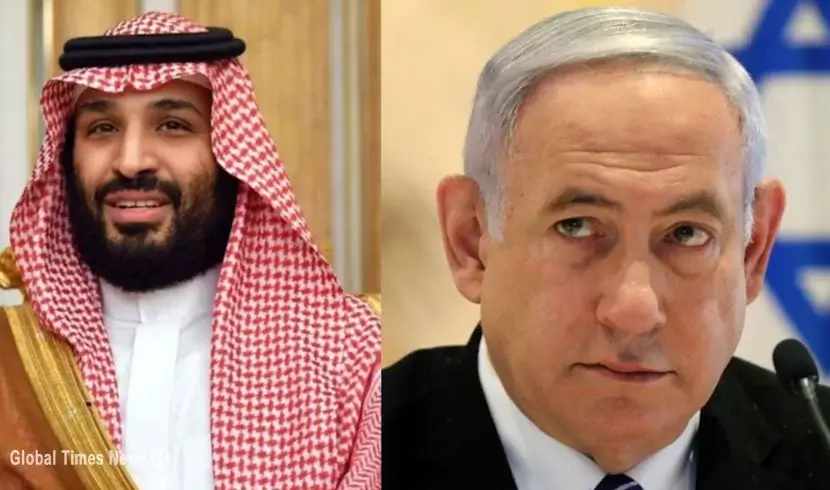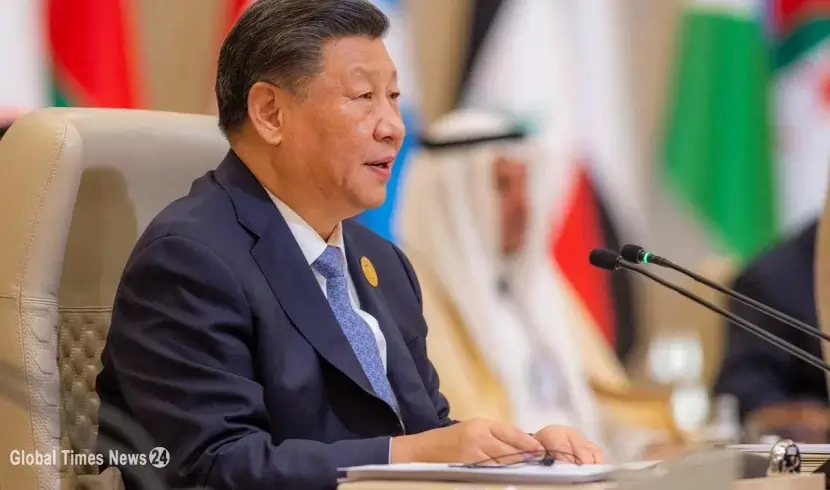MBS Seeks Exit Strategy: Normalization Amidst Formation of Palestinian Government
Table of Contents (Show / Hide)

In the midst of a shifting regional power dynamic following the Gaza conflict, Saudi Arabia finds itself navigating through turbulent waters, seeking a path to stability.
Prior to the unexpected events of October 7th, Saudi Arabia had been poised to establish normalized relations with Israel, albeit without addressing Palestinian political concerns. Within this context, any concessions to the Palestinians were limited to potential assistance and a reduction in Israeli pressures and actions against them.
The anticipated cost of this normalization was a defense agreement with the United States, aimed at securing Saudi Arabia's regional position and bolstering Mohammed bin Salman's leadership, particularly as Saudi Arabia heavily invests in construction, tourism, and entertainment projects to assert its regional influence.
However, on October 7th, Bin Salman's carefully crafted plans unraveled. Riyadh now finds itself bearing the brunt of the fallout from "Operation Aqsa Storm."
From a surge in support for resistance movements to disruptions in the Red Sea, leading to the suspension of peace negotiations with the Houthis and the escalation of the Yemeni conflict with the UAE's return, tensions are mounting to the detriment of Saudi Arabia. Additionally, the possibility of a conflict involving the United States and the United Kingdom with the Houthis further complicates Riyadh's position.
In light of these events, it appears that Saudi Arabia's attempt to link the cessation of hostilities in Gaza with the normalization of relations with Israel has backfired. This effort, including endeavors to broker a ceasefire in Gaza and secure the release of Israeli prisoners held by Hamas, has been viewed as contradictory to Riyadh's stance on normalization by some Arab regimes.
However, Prime Minister Netanyahu seems resolute in rejecting any ceasefire proposal, including those originating from Saudi Arabia. He perceives such initiatives as potential traps, fearing they could signify capitulation to Palestinian resistance and possibly lead to his prosecution.
Despite Netanyahu's stance, it's noteworthy that neither he nor the majority of Israelis support the establishment of an independent Palestinian state. Israel's long-term strategy appears to involve confining Palestinians to remote, Israeli-controlled territories surrounded by settlements, ultimately making conditions untenable for them and compelling their displacement.
Conversely, the Palestinian population, particularly resistance factions, vehemently opposes the two-state solution being advocated by the United States. In this context, Saudi Arabia's proposed plan is seen not just as a potential resolution for the Palestinian issue, but also as a means to safeguard its own interests and the leadership of Mohammed bin Salman.
However, this plan faces significant obstacles from both sides of the conflict. Netanyahu, fearing defeat and potential legal repercussions, rejects the idea of a ceasefire, while the Palestinians adamantly oppose any solution that falls short of their aspirations. As a result, Saudi Arabia's initiative appears doomed from the outset.
Saudi Arabia now confronts two options: either resume the normalization process with Israel, disregarding Palestinian political concerns as before October 7, a move fraught with peril for Mohammed bin Salman; or refrain from involvement in the ongoing conflict, a path that currently appears the most favorable for bin Salman despite its drawbacks.
The driving force behind the joint initiative by the United States and Saudi Arabia is their shared recognition of the pivotal role Saudi Arabia plays in any new American regional strategy. Washington is keen to maintain its relationship with Saudi Arabia, which is expected to serve as a cornerstone of any future American arrangement in the region.
As such, the United States is reluctant to engage in conflict with the Houthis, as this could disrupt its regional objectives and diminish its influence in the area.
The United States is closely monitoring the ongoing conflict between Israel and the Palestinians, recognizing that a Hamas victory would undermine its regional interests. Consequently, it is proposing initiatives that Netanyahu vehemently opposes.
Saudi Arabia's persistent overtures to Israel stem from Mohammed bin Salman's eagerness to fully integrate into the American security and political framework, a process expected to be solidified through a defense treaty between the two countries. In essence, amid the reshaping of regional power dynamics post-Gaza conflict, Saudi Arabia seeks a secure passage through this tumultuous phase.
URL :
News ID : 2832

 Tragic Collision Claims Lives of Over 20 Mineworkers in South Africa
Tragic Collision Claims Lives of Over 20 Mineworkers in South Africa
 Trump likely to be the Republican nominee
Trump likely to be the Republican nominee
 Houthis Surprise Landing on Israeli Cargo Ship Galaxy Leader in Red Sea
Houthis Surprise Landing on Israeli Cargo Ship Galaxy Leader in Red Sea
 Why is the Houthi Missile Attack on the British Oil Tanker Marlin Luanda so Important?
Why is the Houthi Missile Attack on the British Oil Tanker Marlin Luanda so Important?
 UN says ‘too soon to evaluate' China peace plan for Ukraine
UN says ‘too soon to evaluate' China peace plan for Ukraine
 Israel-Saudi Normalization: Navigating Complexities for Regional Change
Israel-Saudi Normalization: Navigating Complexities for Regional Change
 Why Palestinians in Gaza have suffered for decades
Why Palestinians in Gaza have suffered for decades
 Saudi-Israel normalization of relations; terms & conditions
Saudi-Israel normalization of relations; terms & conditions
 Israeli Housing Market Crisis: War Sparks Industry Collapse
Israeli Housing Market Crisis: War Sparks Industry Collapse
 Nakba 75: Palestinian citizens of Israel are exiles in their own land
Nakba 75: Palestinian citizens of Israel are exiles in their own land
